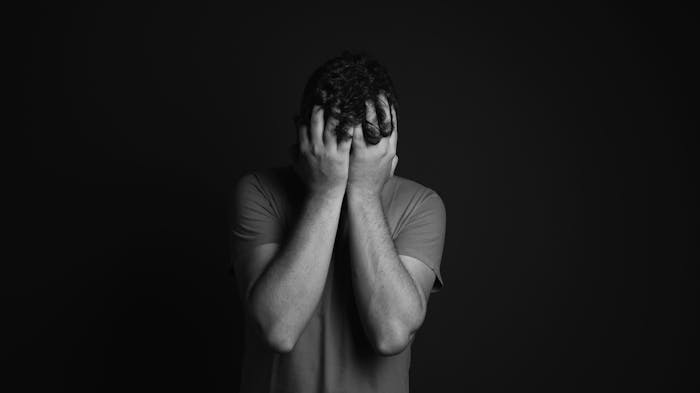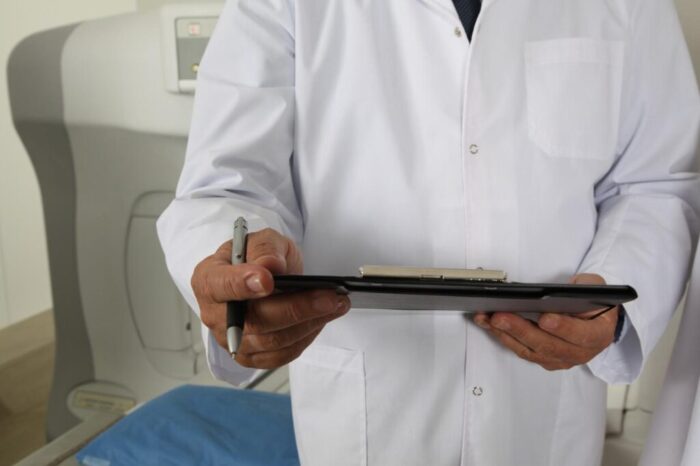Why You Can’t Put Off Addiction Recovery
Addiction recovery can seem like a daunting topic if you are in active addiction, and this fear of getting help can lead to people never getting the help they really need.
However, by not trying to get help for your addiction, you are likely to end up in a much worse place in terms of physical and mental health, as well as other areas of life from relationships to finances, as addiction takes over everything often without us even realising it.
So, if you are thinking of getting help for your addiction but find that you keep putting it off, then here are the key reasons why you need to get support as soon as possible, how you can get help and why you will be much better off after seeking addiction recovery.
Why People Put Off Seeking Help

There are several reasons why people might put off getting help for their addiction, and often people feel a combination of different things build up which demotivates them when they want to get help.
1. They are Unsure If They Can or Really Want to Give Up Substances
Due to the nature of addiction, making the initial decision that you do not want to use substances anymore can be a very daunting one.
This is because of the effect that addiction has on the brain, and how it affects our brain systems including our thoughts, feelings and behaviours. [1]
One of the key symptoms of addiction is the craving of substance/s and having frequent thoughts about consuming the drugs or alcohol you are addicted to. [2]
This, therefore, can be difficult for many people to remain strong in their conviction to get help as they continue to battle the thoughts which come from their psychological addiction.
Addiction also gives those affected a sense of a loss of self-control over their behaviours, thoughts and actions. This is due to several psychological and physical processes within addiction including the weakening of brain circuits that help manage stress and self-control. [3] [4]
This means that people often feel as though they don’t have the ‘willpower’ to stop taking substances, that they are not sure if they really want to due to the addiction thought patterns and that they begin to lose hope for an addiction-free life.
It can feel like an uphill battle when a person struggling with addiction wants to get sober and no longer wants to take the substance/s they are dependent on, with their own brain fighting against them.
If you are feeling unsure whether you will be able to give up your substances, or whether you can trust that you really want to give them up, then be rest assured that these feelings are entirely normal.
If you enter into addiction recovery, industry professionals will be knowledgeable about how addiction affects your mental state and they will be aware that you will likely be unsure of your ability to remain sober and that you will be battling addictive thoughts.
However, that is why addiction recovery contains several options to help you through these challenging physical and psychological challenges.
Through professionally managed detox and addiction therapies, or alternative psychologically-informed alternative addiction recovery methods, you can get on the road to recovery a lot sooner than you think.
2. They Don’t Think Addiction Treatment Works
As well as being sceptical about their own ability to recover, many people who might want or need treatment can be doubtful about whether addiction treatment works.
However, studies show that people who participate in addiction treatment are more likely to reduce their drug consumption, exhibit better behaviour and less criminal behaviour during and after treatment than prior to treatment and the more engaged a person is in treatment the better the outcomes. [5]
Unfortunately, substance use disorder is chronic and has a high relapse rate due to the nature of addiction among other reasons such as comorbid disorders and environmental factors. [6]
Because of this, many people doubt whether rehab really works, despite substantial evidence of the effectiveness of addiction treatments. [7]
However, with professional help you can learn to cope with triggers and recognise the signs of relapse, meaning that rather than a relapse pushing you back in recovery you can have the tools and knowledge to cope with a potential relapse before it’s too late and get back on track.
There are a wide range of treatment options available and not everything is going to work for everyone.
Therefore, it’s important to remember when seeking treatment that if one type doesn’t work for you, or if you feel like another would be more suitable, there are always options.
If you engage in treatment however, and actively try to use it as a tool to understand and manage your addiction, then you have a much higher chance of seeing positive results.
3. They Don’t Think They Need Treatment
Awareness around addiction is improving but it can still be a lot better, particularly when it comes to people recognising when they have a problem.
The media often portrays a very specific stereotype of someone addicted to a substance (often hard drugs such as heroin) and so many people can become addicted to substances without even realising it.
This can be very true of alcohol in particular, due to the popularity of binge drinking among young people in the UK and the prevalence of pub culture. However, alcohol is an addictive substance which can have a highly detrimental effect on those who become dependent on it.
To help you recognise the signs of addiction in yourself or your loved ones, you can take note of the diagnostic criteria for addiction (the psychological name for which is Substance Use Disorder).
The symptoms of Substance Use Disorder are outlined in the DSM V and consist of criteria including the inability to control how much you drink or consume substances (often consuming more than intended), not being able to stop consuming the substance despite trying to stop or minimise intake and continuing to take the substance/s despite negative consequences. [2]
Other criteria include partaking in risky behaviours due to substance/s, building up a tolerance so it takes more of the substance to have the same effect and avoiding or not completing employment, relationship or other duties due to substance/s.
If these symptoms sound familiar to you, or if you are afraid of going down the road of addiction due to your current drinking or drug taking habits, then it’s best to reach out now for help. You can call one of the Rehab Recovery teams to discuss options or explore local Rehab options near you.
4. They Think They Can’t Afford Treatment
Rehab is often talked about in the terms of wealthy celebrities who stay in a private rehab clinic to get help for their addiction. Therefore, rehab has often been misconstrued as only an option for those who have money.
However, there are plenty of addiction recovery options for people who do not have the funds to afford a 28-day stay in an inpatient private rehab.
First of all, if you don’t have private funds, then you could still get your treatment covered if you have private health insurance. Companies such as BUPA and Aviva cover addiction treatment, and depending on your policy you might well be covered for either inpatient or outpatient private treatment.
If you don’t have health insurance that covers rehab. NHS rehab is free to all UK citizens and there are inpatient and outpatient options available.
Inpatient NHS rehab is more limited than private rehab due to less space, and you are likely to be put on a waiting list to begin your treatment. However, it is possible to get inpatient detox and/or a full course of inpatient treatment on the NHS.
There are also outpatient addiction treatments available on the NHS such as cognitive behavioural therapy, addiction counselling and medically assisted addiction treatments.
As well as NHS services which are available all over the UK, there are a number of charity services which provide free treatment in the form of addiction therapies and peer support groups.
Charities such as Change, Grow, Live (CGL), Humankind, We Are With You and The Forward Trust offer support for addiction as well as help in other areas of life such as housing and employment. [8]
Often addiction affects so many areas of our lives that it can be hard knowing how to go about fixing it all, but with the help of the NHS and addiction support charities it is very achievable to break free from your addiction and begin the life you want to lead, even if you do not have access to funds.
When is the Best Time to Get Addiction Help?

To answer the question of when to get help: Now.
It can be very tempting to put off getting help until later, as much like anything that makes us fearful, uncomfortable or anxious, it feels a lot better if we don’t have to do it now.
When it comes to addiction, it can be very tempting to have a ‘one last time’ mentality where you put off going into treatment in favour of experiencing the one thing we are dependent on just ‘one last time’.
However, the last time is never really the last time, as all it does is reinforce the idea that we can get help later and don’t need to do it now. It lulls us into a false sense that we are making change when really we are simply putting it off because the change is too scary to face.
So, biting the bullet and reaching out for help today is the best way to approach recovery. Instead of waiting for the perfect time, or until you have your last hurrah, get in touch with the Rehab Recovery team, reach out to your GP or contact local rehab clinics to start your recovery journey now.
What Happens If You Don’t Get Help

Staying in the same place as you are now might seem like a good option so you can put off making changes, but in reality it won’t stay the same forever.
Addiction won’t go away on its own, and the more you put off getting treatment the longer you will be on this cycle of addiction. [9]
That means continuing to take substance/s that are physically and mentally harmful, and having your substance use take over all areas of your life.
Alcohol addiction has very harmful effects on the body, with health risks that include the development of several types of cancer including breast cancer, head and neck cancer, bowel cancer and liver cancer as well as liver disease, strokes and high blood pressure. [10]
Heroin addiction is also related with a number of health issues including insomnia, constipation, lung complications (e.g. pneumonia and TB), bacterial infections of the heart valves, scarred or collapsed veins and a perforated nasal septum. [11]
Drugs such as Marijuana are often viewed as less harmful, but this can also have very detrimental effects on physical and mental health. Cannabis consumption has been linked to impaired cognition, memory problems, respiratory issues, increased heart rate and Cannabinoid Hyperemesis Syndrome. [12]
Alongside the physical health issues of addiction, substance use often co-occurs alongside mental health issues, often exacerbating existing conditions and increasing the risk of developing several mental disorders. [13]
Other areas of life such as employment and family are also heavily impacted by addiction, and that is unlikely to improve if you don’t get help as soon as possible. [14]
What Addiction Recovery Options are Available?

People may be reluctant to start addiction recovery as they don’t know what to expect and what treatment really looks like.
However, there are several options open to you, either available via private rehab or NHS rehab, and the key is exploring options and finding the right one for you.
1. Detox
The first step in recovery is a drug and/or alcohol detox. This is the period of time when you are coming off of the substance/s you are addicted to. This is likely going to be a very uncomfortable and difficult process, which usually lasts around 7-10 days in total.
During this time you might experience withdrawal symptoms, including cravings, so it is often advised that you receive an inpatient detox. This is where you stay in the rehab as an inpatient and are monitored by the staff.
An inpatient detox can help you through withdrawals, provide the medical support you need and help you resist the urge to use substance/s.
Other alternatives may be an at-home detox, where a loved one supports you and a doctor is available via video call to prescribe medication and monitor your recovery.
2. Psychological and Behavioural Therapies
Cognitive Behavioural Therapy is often offered on the NHS as well as in private rehab, and is available on an inpatient or outpatient basis. It is also available in group sessions or one-to-one.
This adaptable and flexible treatment options aims to change the way you behave by reframing your thought processes. This means recognising when you are having a negative thought pattern which may lead to you seeking out the addictive substance, or noticing what thought frameworks lead you to taking the substance.
Through psychological techniques, CBT can help you challenge your thoughts and explore why and how you can think in a different way, prompting you to change your behaviour and outlook.
Addiction counselling, group therapy and other talking therapies are also available in private rehab and via the NHS.
These types of therapy allow you to discuss your experiences, explore the root causes of your addiction and delve into techniques which can help you in recovery.
Motivational Interviewing and Motivational Enhancement Therapy are approaches which focus on your motivations for getting sober. This approach is often suited to those who are doubtful of whether they can get sober, or need support in seeing how life could be once they are in recovery.
3. Support Groups and Self-Help Treatment Options
Mutual aid groups such as Alcoholics Anonymous and Narcotics Anonymous can also be really helpful in addiction recovery, as well as self-help groups such as SMART Recovery.
These are outpatient, community-based treatments which allow you a more independent route to recovery based on a 12 step programme and group meetings (AA and NA) or 5 steps to follow based on self improvement and motivation (SMART Recovery).
How and Where to Get Help for Your Addiction
You can discuss addiction recovery options with a member of the Rehab Recovery team today and they can assist you in finding the right support for you.
Most addiction treatment services are available on a self-referral basis, so you will just need to contact the rehab yourself either over the phone or online, or fill out their self-referral form. These are usually available via the treatment providers website.
Charities also often offer treatment based on self-referrals, or referrals from a professional body such as a doctor or support worker.
For NHS addiction treatments, visiting your GP is a good first port of call too. They will have knowledge of the treatment options in your area and be able to assess which treatments might be most suitable for you. They can put in a referral or guide you through the self-referral process.
The Road to Recovery

Once you decide not to put off addiction treatment, you can begin on the road to recovery.
It might seem a long way off now, but once you make that first step towards getting help for your addiction, you are one step closer to being free from the grips of addiction.
Through professional addiction treatment you will be provided with the tools to navigate independent recovery once you are ready, from learning how to manage triggers to recognising and navigating relapse.
So don’t wait another day and instead start on the road to recovery today, the sooner you do, the sooner you will be able to get your life back.
References
[1] Institute on Alcohol Abuse and Alcoholism (2023) ‘Neuroscience: The Brain in Addiction and Recovery’, The Healthcare Professional’s Core Resource on Alcohol: Knowledge, Impact and Strategies, https://www.niaaa.nih.gov/health-professionals-communities/core-resource-on-alcohol/neuroscience-brain-addiction-and-recovery
[2] McNeely, J. and Adam, A. (2020) ‘DSM-5 Diagnostic Criteria for Diagnosing and Classifying Substance Use Disorders’, Substance Use Screening and Risk Assessment in Adults, https://www.ncbi.nlm.nih.gov/books/NBK565474/table/nycgsubuse.tab9/
[3] Snoek (2023) ‘Addiction and living in the shadow of death: impact of the body on agency and self-control’, Addiction Research and Theory, https://www.tandfonline.com/doi/full/10.1080/16066359.2023.2230874
[4] National Institute on Drug Abuse (2022) Why are Drugs so Hard to Quit?, https://nida.nih.gov/videos/why-are-drugs-so-hard-to-quit#:~:text=With%20repeated%20drug%20use%2C%20the,want%20to%20use%20them%20again.
[5] Gerstein DR, Harwood HJ, eds. (1990) ‘The Effectiveness of Treatment’, Treating Drug Problems: Volume 1: A Study of the Evolution, Effectiveness, and Financing of Public and Private Drug Treatment Systems, https://www.ncbi.nlm.nih.gov/books/NBK235506/
[6] Nagy et al. (2022) ‘Assessment of addiction management program and predictors of relapse among inpatients of the Psychiatric Institute at Ain Shams University Hospital’, Middle East Current Psychiatry, https://www.ncbi.nlm.nih.gov/pmc/articles/PMC9579533/
[7] Laudet, Savage and Mahmood (2002) ‘Pathways to Long-Term Recovery: A Preliminary Investigation’, Journal of Psychoactive Drugs, https://www.ncbi.nlm.nih.gov/pmc/articles/PMC1852519/
[8] Mind, ‘Recreational drugs, alcohol and addiction’, Information and Support, https://www.mind.org.uk/information-support/types-of-mental-health-problems/recreational-drugs-alcohol-and-addiction/drug-and-alcohol-addiction-useful-contacts/
[9] US Substance Abuse and Mental Health Services Administration (2016) ‘The Neurobiology Of Substance Use, Misuse, And Addiction’, Facing Addiction in America: The Surgeon General’s Report on Alcohol, Drugs, and Health, https://www.ncbi.nlm.nih.gov/books/NBK424849/#:~:text=To%20recap%2C%20addiction%20involves%20a,stress%2C%20and%20executive%20function%20systems.
[10] NHS, Alcohol Misuse, https://www.nhs.uk/conditions/alcohol-misuse/risks/
[11] National Institute on Drug Abuse (2019) Cannabis (Marijuana) DrugFacts, https://nida.nih.gov/publications/drugfacts/cannabis-marijuana
[12] National Institute on Drug Abuse (2018) ‘What are the medical complications of chronic heroin use?’, Heroin Research Report, https://nida.nih.gov/publications/research-reports/heroin/what-are-medical-complications-chronic-heroin-use
[13] Bethesda (2020) ‘Common Comorbidities with Substance Use Disorders Research Report’, National Institutes on Drug Abuse, https://www.ncbi.nlm.nih.gov/books/NBK571451/
[14] Copello, Templeton and Powell (2010) ‘The impact of addiction on the family: Estimates of prevalence and costs’, Drugs: Education, Prevention and Policy, https://www.tandfonline.com/doi/abs/10.3109/09687637.2010.514798




